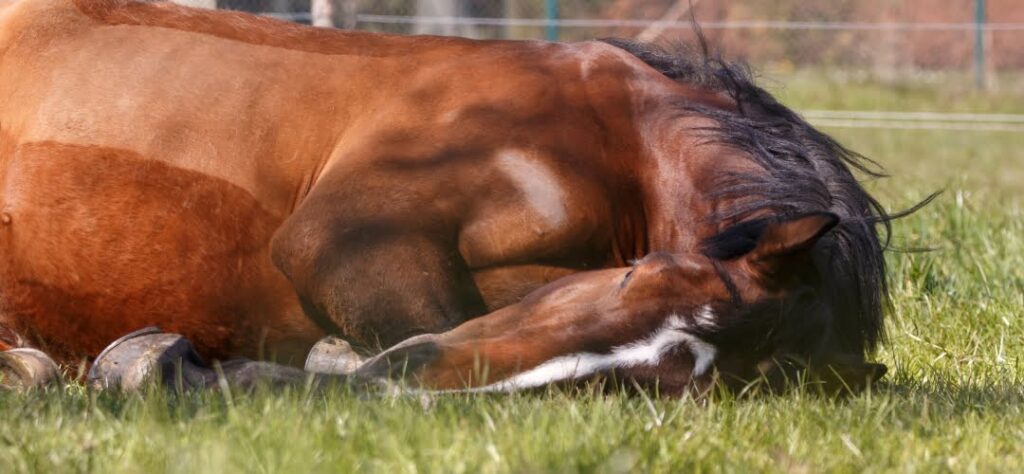Horses are magnificent animals that require proper care and attention to maintain their health and well-being. One common health issue that horse owners may face is colic. As a responsible horse owner, it’s essential to understand colic and the role that diet plays in preventing and managing this condition.
The Importance of Diet in Preventing Colic
Diet plays a significant role in preventing colic in horses. Providing a balanced and appropriate diet can help maintain optimal gastrointestinal health and reduce the risk of colic episodes. Two key factors to consider in a horse’s diet are fiber content and hydration.
However, one common cause is digestive disturbances resulting from an improper diet. By understanding the importance of diet and making informed choices, horse owners can significantly reduce the risk of colic in their equine companions.
Role of Fiber in a Horse’s Diet
Fiber is an essential component of a horse’s diet and has a protective effect on the digestive system. High-quality forage, such as weed-free, pre- to early-bloom hays or well-managed pasture, should form the foundation of a horse’s diet. Not only does fiber provide essential nutrients, but it also promotes healthy digestion.
When horses consume fiber-rich feeds, it stimulates the production of saliva and increases chewing, which aids in the breakdown of food particles. This process helps maintain healthy gut motility, preventing impactions and reducing the risk of colic. Additionally, fiber fermentation in the hindgut produces volatile fatty acids, which serve as an energy source for the horse.
Hydration and its Impact on Colic
Water is essential for maintaining proper digestion, nutrient absorption, and overall bodily functions. Horses should have access to clean and fresh water at all times, as dehydration can lead to impaction colic or other digestive issues.
Monitoring water consumption is crucial, especially during hot weather or when horses are engaged in strenuous activities. Horses may drink less water during colder months, so it is essential to ensure they are still adequately hydrated. Providing heated water sources or adding electrolytes to their diet can encourage water intake.
In addition to water, horses can also obtain hydration from moist feeds, such as soaked hay or feeds with added water. These options can be particularly beneficial for horses with dental issues or those who struggle to drink enough water.
Foods to Avoid for Horses Prone to Colic
While most horses benefit from a well-balanced diet, certain foods should be avoided for horses prone to colic. Two primary culprits are grain overload and lush grass. These can pose significant risks to the digestive system and increase the likelihood of colic episodes.
The Dangers of Grain Overload
Feeding excessive amounts of grain or feeding grain irregularly can disrupt the microbial balance in the horse’s gut, potentially leading to digestive issues and colic. The equine digestive system is designed to process fibrous plant material, such as hay and grass, rather than high-starch grains. When horses consume large quantities of grain, it can overwhelm their digestive capacity and cause fermentation imbalances.
Grain overload can result in the production of excessive gas and lactic acid in the horse’s intestines, leading to discomfort and potentially severe colic.
Risks of Horses on Lush Grass
Lush grass, especially if horses are allowed unrestricted access after being stabled for an extended period, can lead to digestive disturbances and colic. The sudden change from a dry forage-based diet to a high-moisture grass diet can disrupt the microbial population in the horse’s gut.
Additionally, certain types of grass, such as those high in fructans, can be difficult for some horses to digest. When horses consume large quantities of fructans, it can ferment rapidly in the hindgut, leading to an imbalance in the microbial population and an increased risk of colic.
Properly managing grazing time and slowly introducing lush grass can help minimize the risk of colic. Gradually increasing the amount of time horses spend on pasture and monitoring their response to the change can help identify any potential issues before they become severe.
Furthermore, implementing a rotational grazing system, where horses are moved between different pastures, can help prevent overconsumption of lush grass and allow the pasture to recover from grazing, reducing the risk of colic.
Recommendations for Horses with Colic Tendencies
When considering the diet of a horse prone to colic, it’s essential to focus on feeding foods that promote optimal digestive health and reduce the risk of colic episodes. By carefully selecting and providing the right foods, horse owners can help prevent colic and ensure their equine companions maintain good digestive health.
The Benefits of Hay in a Horse’s Diet
Hay is a staple in a horse’s diet and provides essential fiber for maintaining healthy gut function. High-quality hay should be the primary source of forage, ensuring that it’s free from dust, mold, and weeds. Regularly supplying clean and appropriate hay helps support digestive health and minimizes the risk of colic.
When choosing hay for horses prone to colic, it’s important to consider the type and quality. Timothy hay, for example, is known for its high fiber content and is often recommended for horses with sensitive digestive systems. Alfalfa hay, on the other hand, is rich in nutrients but should be fed in moderation due to its high protein and calcium levels.
Soaking hay can also be beneficial for horses prone to colic. Soaking hay for about 30 minutes before feeding can help reduce the risk of impaction colic, especially in horses with dental issues or those prone to bolting their food.
The Role of Pelleted Feed
Pelleted feeds are formulated to provide balanced nutrition and can help ensure horses receive adequate vitamins, minerals, and other essential nutrients. When selecting pelleted feed for horses prone to colic, it’s important to consider the ingredients and their digestibility. Opting for feeds with easily digestible fiber sources, such as beet pulp or soy hulls, can be beneficial for horses with sensitive digestive systems.
Introducing pelleted feed gradually is also essential to allow the horse’s digestive system to adjust. Sudden changes in diet can increase the risk of colic, so it’s best to make any dietary changes slowly over a period of several days or weeks.
Proper diet plays a crucial role in preventing and managing colic in horses. By understanding the causes of colic, recognizing the symptoms, and implementing a well-balanced diet, horse owners can greatly reduce the risk of colic episodes. Regular veterinary check-ups and proactive communication with professionals ensure that the diet plan is personalized to your horse’s needs. With proper care and attention, you can keep your horse healthy and thriving, even if they are prone to colic.


